This article contains spoilers for Doki Doki Literature Club (DDLC).
What do you think of first when you hear the term dating sim? Do you get a sweet feeling of soft fond memories of gaining heart events with your Stardew Valley spouse? Maybe it reminds you of competing for a werewolf’s affection against friends in Monster Prom? Am I the only one who recalls slamming the off button on the laptop as a young teenager when I heard a parent walking down to the computer room after I had first decided to explore a smutty Newgrounds game thinking the family had gone to bed?
However sweet, fun, or spicy your experience with dating sims has been, gamers have been connecting to virtual girls and boys since at least 1992. It’s fun to give an NPC their favorite gift to build relationship points or pick that conversation answer that gets a heart emoji from your in-game crush. What can be better than dating in a controlled environment where you can reset the game, change your answers, and re-raise that support level?
But whenever I’m feeling too cozy with an in-game crush, I can’t help shaking the fears that the 2017 indie classic Doki Doki Literature Club instilled in me. The game is a psychological thriller disguised as a cozy Japanese schoolyard dating sim in which the player joins an after-school poetry club that features four of the genre’s classic stereotypes. Sayori is the sweet and slightly awkward girl next door, Yuri is the dark academia witchy weird girl, Natsuki is the slightly bratty spunky small one, and then Monika is the popular put-together club president.
For those who have played DDLC, the game’s horror elements start to arise amid cute rhyming minigames and picking which bachelorettes to hang out with. Monika, who it turns out is much more than her kawaii anime drawing sprite suggests, reveals herself to be sentient. She starts manipulating the game to her advantage, drawing the player away from the other three girls. And as these efforts fail, she begins to off her competition by reprogramming the other characters’ quirks into a nauseating slurry of suicidal tendencies and deep psychosis.
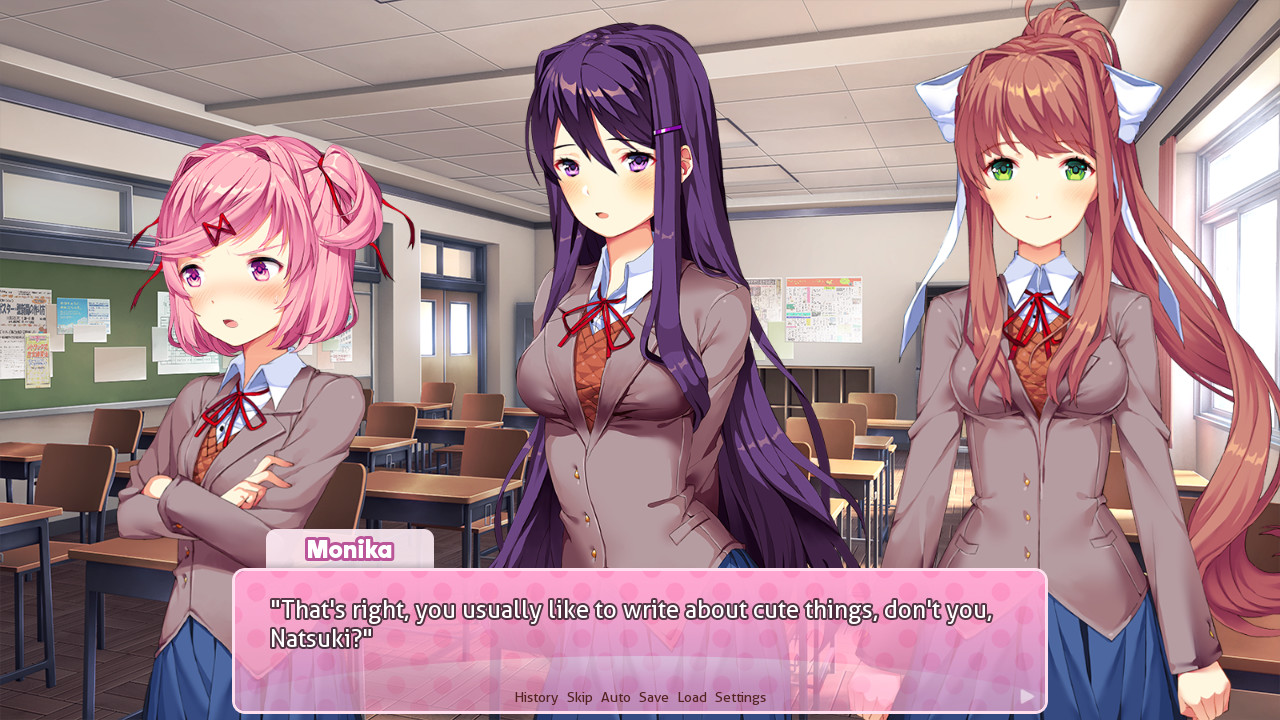
Monika’s takeover extends beyond digitally murdering her fellow club members, as she eventually begins corrupting the game itself, accessing your desktop files and eventually taking over your computer. The player’s only escape comes after she accidentally lets slip how to delete her by deleting a file subheader outside the game. For those wondering what happened to the dating-sim aspects, don’t worry: She spills this information during a sinister dinner date at a hellish fiery kitchen table.
DDLC is filled with jump scares, heartbreak, psychological horror, and some other truly fucked-up stuff, but the game’s biggest strength is how it makes you care about its cast just genuinely enough. As zany as the premise of “AI takes over a dating sim to get that ring” is, the game holds no punches in showing you each character’s fears and inner demons.
Each bachelorette is in need of something more than you as the player can provide for them. Even as non-sentient characters, Sayori, Yuri, and Natsuki all become fully realized, unlike the stereotypical cardboard cutouts most dating games present, each hinting at mental health issues that you can only respond to with flirtatious or dismissive follow-ups.
Even if they are momentarily relieved by your character’s haphazard conversation options, it becomes more and more clear that the girls are not the traditional dating-sim fodder that simply exist to serve the base emotional needs of the player. They all know something is off about themselves and their situations, and those base conversational options you’re tossing at them to get them to agree to go on a date with you are not going to save them no matter which angle you try.
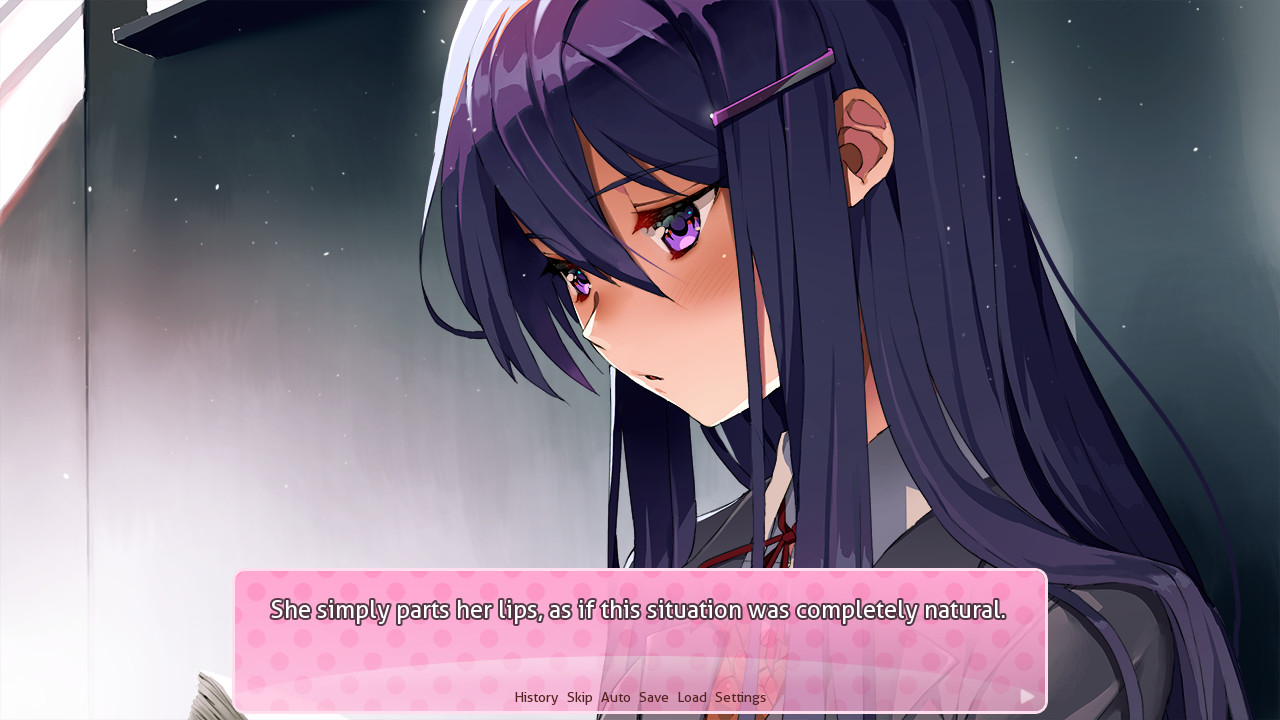
Monika’s obsession with the player works to present a dating sim fan with a dose of their own medicine. Monika is aware of her in-game abilities, able to manipulate game mechanics and decision trees to maximize their potential to woo their target, just like the player. She’s some classic AI horror, sure. But because she’s capable of the same level of heinous obsession and manipulation as the player, she brings some terrifying insights to human horror as well.
I’ve made it a habit to watch my friend play DDLC every Valentine’s Day as a cathartic reminder of how love is supposed to work. It certainly isn’t cute or cuddly, and I’ll note it should be avoided by those with triggers surrounding mental illness. But it presents an actual look at how we view our own relationships and crushes. It gives considerable insight in how to grow outside of your goals with another person. And it will leave you reevaluating if any of those dating-sim tactics you use when wooing an NPC are creeping into how you’re trying to hold your real-life relationships.
For players who revisit the game after Monika has been defeated and are looking to enjoy a dating sim free from corruption, they will discover that now the sweet and caring Sayori is becoming as sentient and even more dangerous than Monika. Before the game even gets very far, Monika returns from the cloud and deletes DDLC. She sacrifices herself and her world not for her own manipulative reasons, but surprisingly as a selfless effort to protect the player. She’s had time to think in the cloud and realizes the healthiest way to show her love is by rescuing them. As the game ends and the credits cue, Monika performs a cute bubbly acoustic song, “Your Reality,” as her farewell to the player.
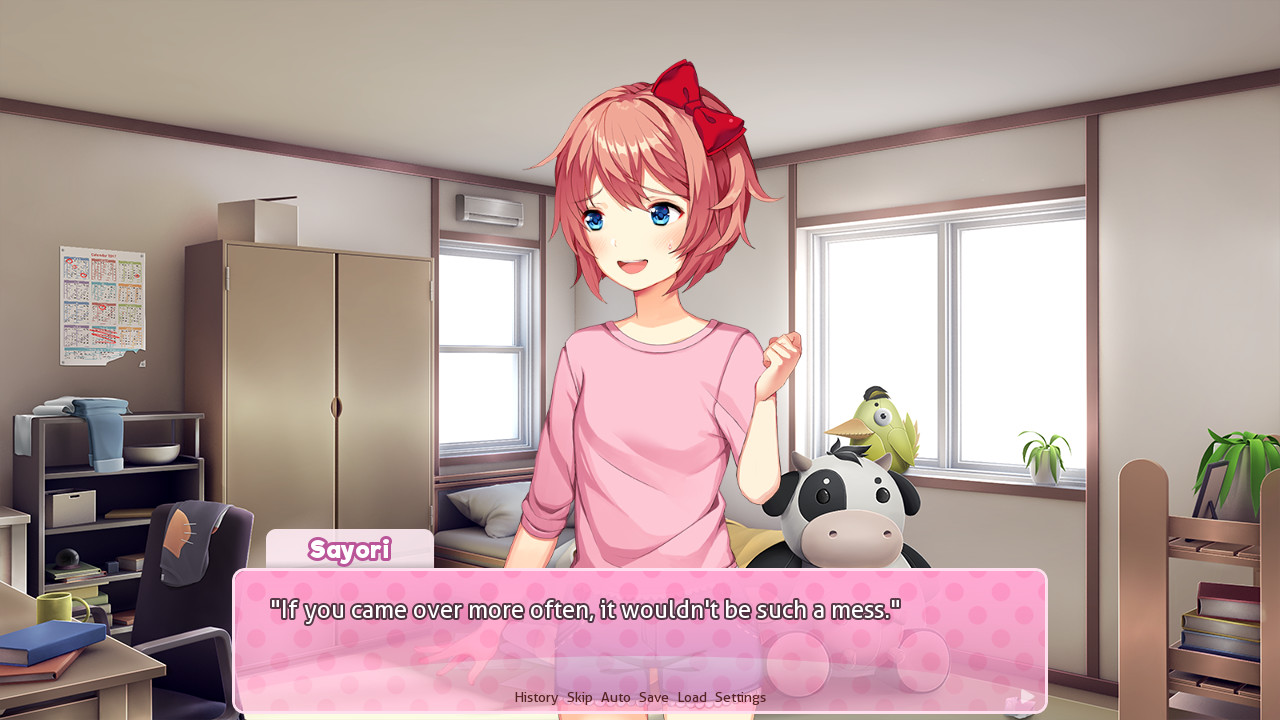
“Is it love if I take, or is it love if I set you free,” she sings, pondering her actions.
When I first got to this final farewell, I found myself thinking back on things I said over the game. I’d picked conversations with Sayori to win her over rather than things that would have encouraged a more therapeutic angle. I ignored some telling moments concerning Yuri’s occasional obsession with violence just to get her into a cute library date. I’d ignored Natsuki in several moments that could have kept her safe.
What were the right answers? Should I have chosen Monika to save everyone from their fates? What were the steps I should’ve done in-game to support these characters I’d grown to care about?
“If I don’t know how to love you, I’ll leave you be,” she concludes perkily.

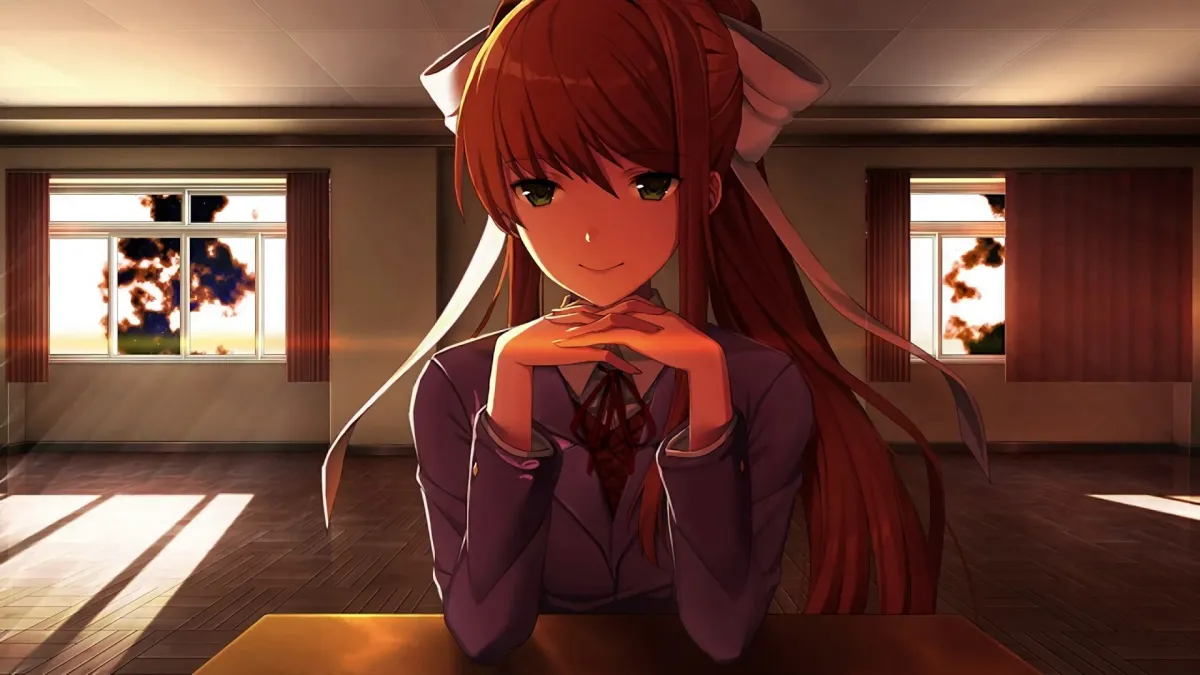
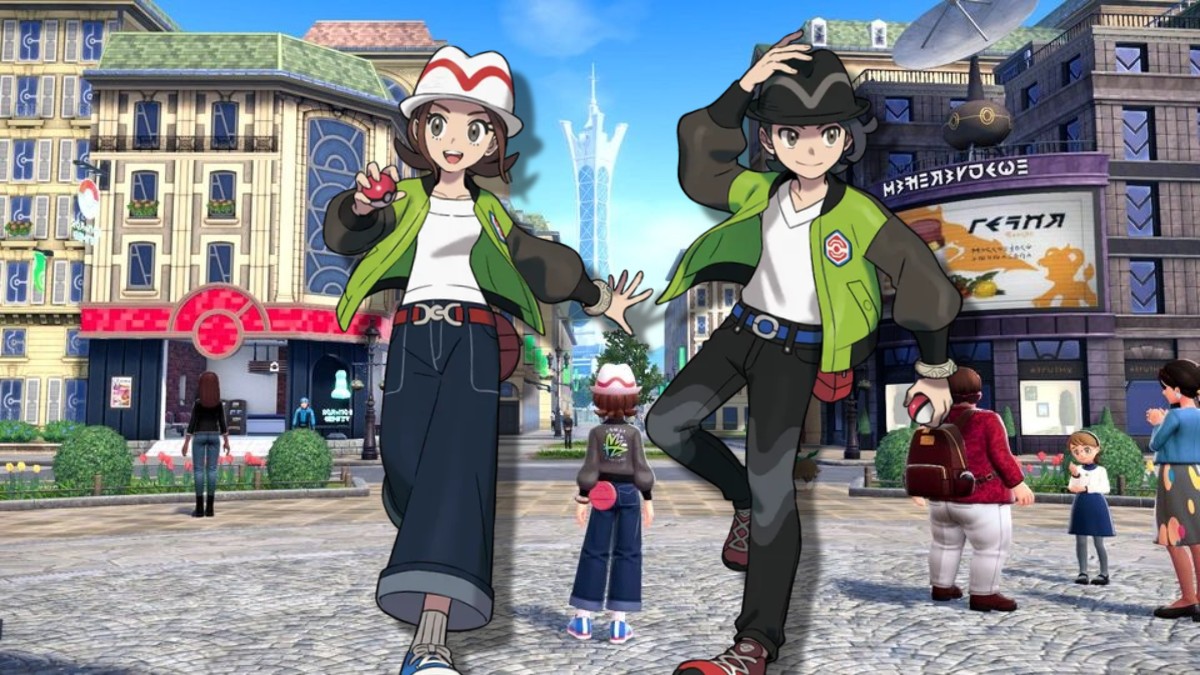

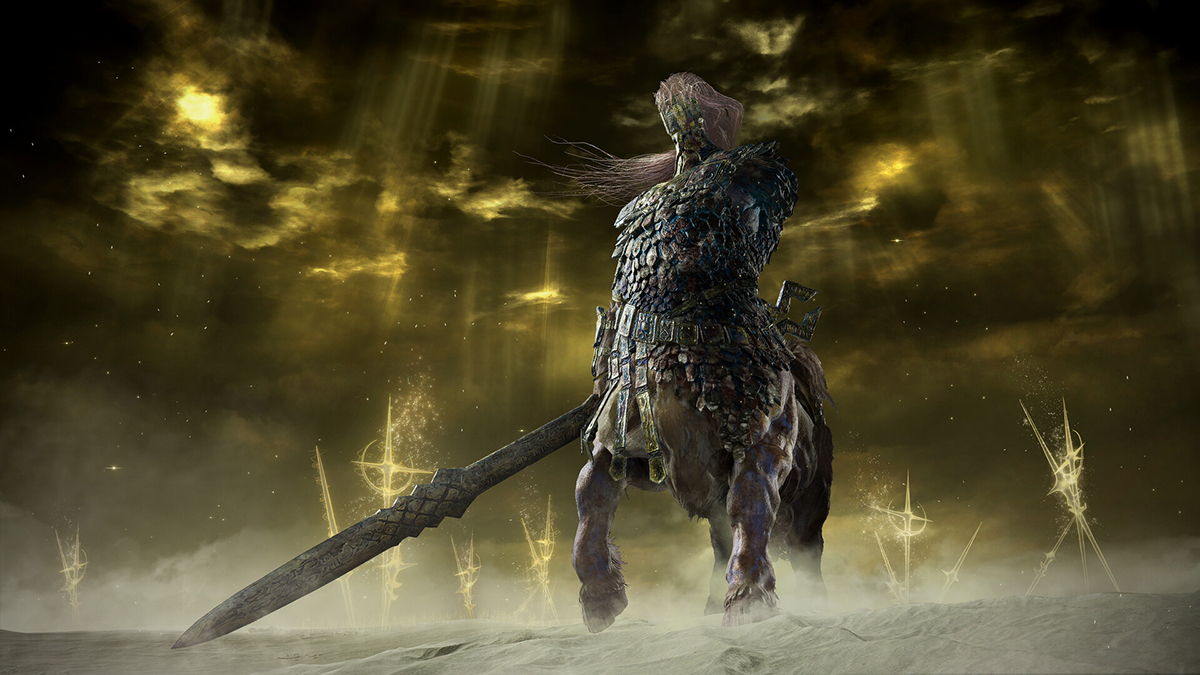




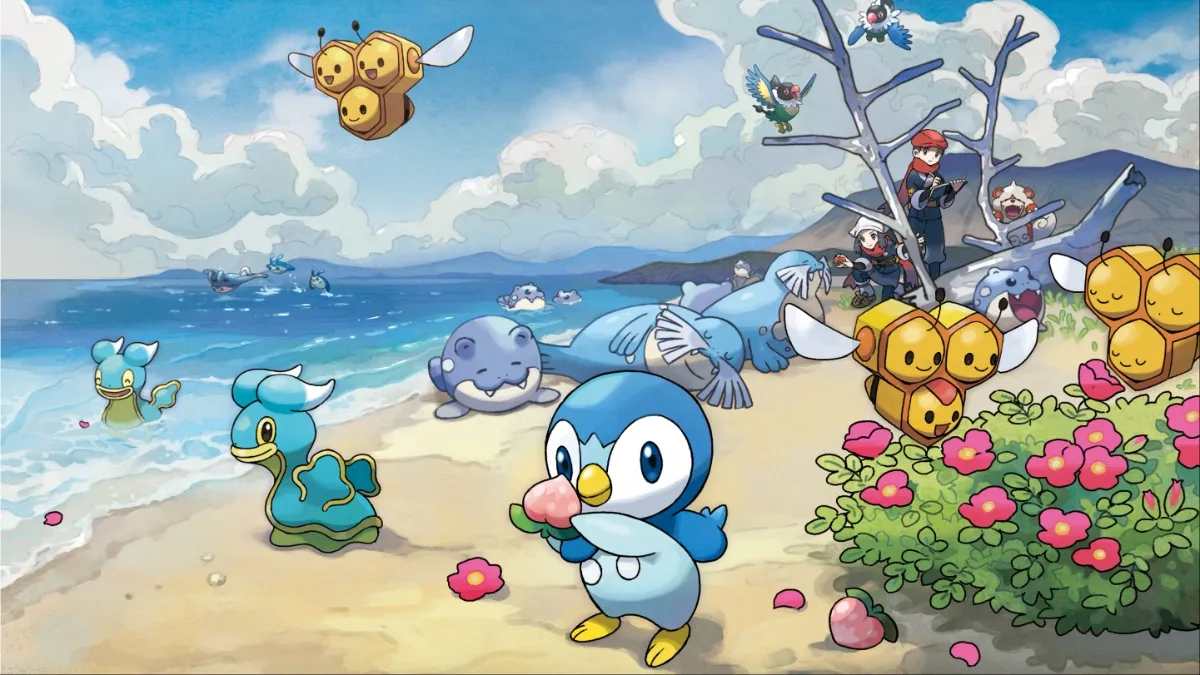




Published: Feb 14, 2023 5:00 PM UTC